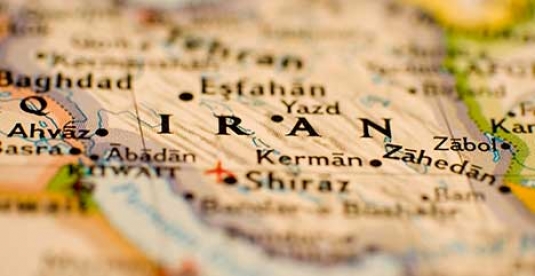As the national debate on the arms treaty with Iran continues in this country, Iran, the EU, the UN and the US adopted the Joint Comprehensive Plan of Action (“JCPOA”) on October 18, 2015. The JCPOA allows for the phased elimination of international sanctions levied against Iran as a result of its nuclear program. As long as Iran does not develop or acquire any nuclear weapons, the deal offers both opportunities and risks for those considering business in Iran or with Iranian entities. Successfully implementing the JCPOA and its associated sanctions relief will have considerable effects on Iran’s already robust economy according to the World Bank.
Iran is bountiful with opportunities as the second largest economy in the Middle East and North Africa with nearly 79 million people and an estimated GDP of $412 billion in 2014. The sanctions relief opens the doors to an emerging market for investment firms and trading companies and consumer-orientated companies can send products to Iran’s large population of consumers. Iran’s energy market is drawing interest from energy leaders like Royal Dutch Shell and Total, ranking fourth in crude oil and second in natural gas reserves. Even Iran’s manufacturing sector in 2016 should see significant improvements as the French government announced it planned to lift sanctions next year on motor parts before the signing of the JCPOA in July.
Even though Iran presents a plethora of opportunities, there are significant risks of attempting to do business with the country or its entities. The biggest one remains with Iran’s compliance to not seek nuclear weapons under terms of the treaty, and unfortunately, the US is already calling for an investigation of a possible ICBM test Iran conducted in late October. Without verification from the International Atomic Energy Agency that Iran has complied with specific nuclear-related commitments, there cannot be a set date for implementation of JCPOA commitments.
Implementation Day is not expected to occur until mid-2016. Until then, the existing sanctions remain in place and companies exploring opportunities within Iran should be careful to ensure compliance with the current sanctions regime. Companies should proceed with extreme caution when taking preliminary steps in expectation of Implementation Day to circumvent unintentionally dealing with black-listed persons and assets. The US Office of Foreign Assets Control (OFAC) had not relaxed any of the US Sanctions, especially those that prohibit contact with entities in Iran by non-US persons hoping to establish contracts after sanctions relief takes place.
The OFAC has no plans of easing the enforcement of sanctions until Implementation Day and businesses should remain cautious even after Implementation Day. JCPOA will relieve primary US sanctions and also the secondary ones on Implementation Day, such as those imposed by the US on “non-US persons” for doing business with Iran. However, international sanctions imposed on Iran for terrorist financing and human rights violations will remain. Companies in search of opportunities in Iran should create unrestrictive contracts or have options to terminate in case sanctions are not released or they reissued.
While the JCPOA presents significant commercial opportunities, the complexity of the sanctions regime means that parties considering doing business in Iran should carefully analyze the current position before making any commitments. So it is imperative to understand the latest sanctions in detail before doing business in a sanctioned country or with authorized entity. In addition to understanding the sanctions, it is also important to know whether the business crosses between Europe and the US because a firm will need to seek advice to adhere to laws governing both. Companies also should be conscious of the difference between prohibited by sanctions and those only permitted subject to prior authorization. Some sanctions can cover particular entities as well as their interests. In reality, this exposes innocent business partners to significant liability because the entities potentially could be subject to trade restrictions as they are not obviously identifiable as being sanctioned.
Is your business looking to do business in Iran or entities in the country? If you have any questions, please contact our compliance department at compliance@oceanair.net or (781) 286-2700.


